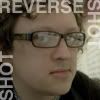The Signal & Be Kind Rewind
It's kind of funny how the universe works sometimes. I've often said that if you pay attention, the world is trying to tell you something. Maybe it's some sort of cosmic thing, maybe it's just our very human capability to find patterns in chaos. I don't know and I don't really care. (Leave that to the philosophers.) What matters is that I get the point therein and do something with it.
Over the last two weeks, I saw The Signal and Be Kind Rewind. Both deal with the influence of media and human connectedness. In one, the media is an overwhelming presence that drives people to kill, and the other shows people making media for themselves and growing as a community.
The Signal is a triptych of short films about a mysterious signal emanating from every TV, radio, and phone that causes people to kill each other. Ironically, everyone thinks everyone else is crazy and the reasons they use to justify murder make a bizarre sort of sense to themselves. The eponymous signal is inescapable. TVs and radios just come on with the broadcast playing.
Be Kind Rewind is about two guys remaking older movies with a VHS camcorder after a magnetized Jack Black inadvertently erases the store's stock of VHS movies. The self-made remakes become a hit and the people in the neighborhood get in on the action. Of course, the studios come in to piss all over the parade.
The reason I bring this up is because I feel like I've been taken too much with the mass media. I've been watching too much TV. I've been reading Digg way too much. I would be totally vulnerable to some sort of killer transmission.
I haven't been working on my back-burner projects. I haven't been making my own media. I keep worrying about finding the next gig so I can pay my bills. I keep living in this weird, fear-based state instead of embracing the whole "do what you love and the money will follow" edict. This kind of progression will only continue to lead me away from the work I wanted to do when I got into this whole industry in the first place.
I'm shifting gears. I'm not sure of how I'm going to get to my destination just yet, but the journey should be pretty cool.


